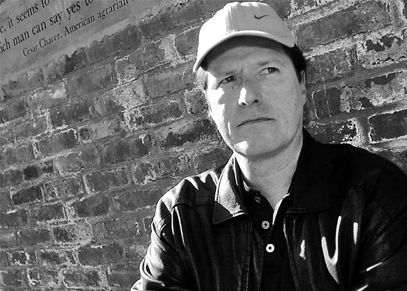And so we begin to hear some feedback from the liberal side, including direct comments from one prominent member of the “Cry Wolf” project. On the Inside Higher Ed website Friday, founder and editor Scott Jaschik addresses Big Journalism’s Academia-Gate series in his post, “Who Is Crying Wolf?”
Some prominent liberal academics are soliciting short essays from faculty members and graduate students to document a pattern in American history of major social advances being opposed by conservatives who “cry wolf” about the impact of proposed reforms. The campaign — known as the “Cry Wolf Project” — hasn’t been officially announced. But conservative bloggers obtained some of the solicitations of essays and published them this week, along with considerable criticism.
A series of posts on Andrew Breitbart’s Big Journalism Web site have called the program “Academia-Gate” and suggested that the effort is inappropriately political. The creators of Cry Wolf, meanwhile, say that what they are doing is awfully similar to the ways that right-leaning scholars have used academic work to advance their causes over the years.

Jaschik acquaints readers with the members of the “Cry Wolf” project coordinators and the details of the request for proposals. He then goes on to cite from a couple of BigJournalism’s posts in the series:
One post on Big Journalism noted that those involved in the project are sympathetic to organized labor, and that many influential academics are serving on the advisory board. “This is what our higher education system has become – a publicly funded amplifier of progressive ideology,” says the post by Patrick Courrielche. “If this Cry Wolf program were just limited to a few faculty members at a limited number of universities, it would be of little concern. But the project reaches into some of the most prestigious public and private schools of higher learning in the U.S., including MIT, Yale, Harvard, USC, Columbia, Rutgers, UC Santa Barbara, University of Pennsylvania, and President Obama’s alma mater — Occidental College.”
Liberty Chick, the blogger who started calling Cry Wolf “Academia-Gate,” described her concerns this way: “What’s far more dangerous is that the ideological academic, in his capacity as a professor, actually possesses the power to control. The power to influence students’ minds, to mold the students’ way of thinking to embrace their own power-hungry desires and believe in it as ‘social justice’ — this is a frightening weapon. Via union solidarity, this weapon is shared with the mobilizers, the janitors and cafeteria workers who agitate the students with various demands against the university after ideologically minded professors have indoctrinated them to hear every grievance as a call for ‘social justice.’
It’s probably worthwhile to note that the author’s citation from my post is best read within the context of the entire post, which is about the relationship between academia and the labor unions. (And while I’d love to take credit for being the first to call Cry Wolf “Academia-Gate”, alas, that moniker came from another creative Big Journalism personality, not from me…but I digress).
Additional references are made to the postings from Erin O’Connor of Critical Mass and from KC Johnson, history professor at Brooklyn College and the CUNY Graduate Center in N.Y., who provides insight on the many reactions from MindingTheCampus.
Jaschik continues by introducing the liberal reaction to Big Journalism’s “Cry Wolf” coverage:
The liberal blogosphere is now starting to defend Cry Wolf. Media Matters described as a “yawner” the idea that “some college professors dabble in politics” and asked what the controversy was all about. The blog post cites the many conservative policy organizations that have close links to conservative scholars. Some of these centers go beyond the Cry Wolf model, the blog notes.
The folks over at Media Matters invoked their usual tactic, which has become so routine that it’s almost like a robotic, Pavlovian response. Focus on the minutia and distract with irrelevant details, and ignore the actual issues.

Build the entire response around the premise of “but the conservatives do it too!” Cite lots of off-point studies and examples that deflect the attention to your negative portrayal of conservatives. Never address the real substance of the argument.
The rest of the liberal critics so far seem to be responding with the exact same argument. They are comparing the “Cry Wolf” research request from prominent figureheads of academia to the equivalent of conservative think-tanks hiring researchers to write policy papers. But, this is comparing apples and oranges.
In his post, Jaschik references correspondence that I think best frames this counter-argument:
KC Johnson, a historian at Brooklyn College of the City University of New York, who also blogged critically about the effort, said via e-mail that it was true that conservative efforts — such as research backed by the Heritage Foundation — could be criticized in the same way, but that Heritage and similar organizations “are not majority ‘academic’ organizations.” He added that in contrast, Cry Wolf “is an organization largely run by academics to pay academics to produce work that supposedly reflects academic standards — and not just the standards of any academics, but ‘establishment’ figures teaching and writing about 20th century U.S. history…. [T]hat approach undermines the argument that contemporary scholarship about U.S. history and public policy isn’t inherently partisan.”

Before our liberal readers dismiss Professor Johnson’s argument as conservative rhetoric, I’ll refer you to Professor Johnson’s own statement from an April 22, 2010 blog post: “For the record, I’m a registered Democrat who supported and donated to Barack Obama’s 2008 primary and general election campaigns.”
Aside from the misguided comparison of academia vs. think tank, and setting aside the issue that “Cry Wolf’s” approach has the potential to undermine the credibility of scholarship as an unbiased source, there is also a key difference between academia and think-tanks, which represents a broader concern.
Academia has direct access to students, whereas the conservative think-tanks that are repeatedly being held up in comparison as the justification for “Cry Wolf’s” approach do not. The labor unions that represent schools’ support and service workers are also the beneficiaries of direct access to students. As I’ve detailed in my posts in this series, these two components often function in tandem as necessary; one interacts with students on policy issues while the other mobilizes them into direct action. This is a powerful dynamic to which there is no justifiable comparison whatsoever to conservative think-tanks. I won’t deny that think-tanks on either side of the political spectrum may collaborate with academia in some aspects, but only the professors and the schools themselves have direct access to students. That dynamic exists only in academia – it does not exist within the framework of the think-tank. You simply cannot and should not compare the two as equal platforms. They most certainly are not.

Jaschik went on in his post to discuss his interview with Peter Dreier, offering Dreier’s direct response to the coverage on BigJournalism.
Dreier, one of the organizers of Cry Wolf, said in an interview Thursday that the furor over the project was unfair. “This is legitimate work,” he said, and the essays will be scrutinized for accuracy. The end result will simply be better organized resources that might be consulted by the public, op-ed writers or others. He also said that he didn’t view this effort as either replacing traditional scholarship or doing anything that conservative groups don’t already do. He added that the pattern of “the world is going to end” reactions to “progressive efforts” is a legitimate issue for scholars to raise and explore.
Dreier deems the project’s work legitimate primarily because it “[isn’t] doing anything that conservative groups don’t already do.” There’s that Pavlovian response again. Has this become a familiar pattern yet?
Let’s indulge the professor on his other point for a moment. Let’s accept his hypothesis that conservatives have a pattern of “the world is going to end” reactions to “progressive efforts”, and therefore is a legitimate issue to explore (like I said, indulge for a moment). Here’s the problem with Dreier’s stance. It’s not the hypothesis that’s the issue, it’s the methodology. The hypothesis is supposed to be a tentative explanation for what you assume to be the case. You perform the investigational research to prove whether your hypothesis is supported by the facts.
But Dreier’s methodology is nothing of the sort. He has already preordained the final conclusion – that won’t change, no matter what facts might be presented by the research. It’s a non-hypothesis, really. Dreier himself indicated in his email, his intent is not to prove a hypothesis. His intent is to willfully paint a picture of conservatives that will elicit a negative reaction from the public.
We therefore need to construct a counter narrative that demonstrates the falsity or exaggeration of such claims so that the first reaction of millions of people, as well as opinion leaders, will be “There they go again!” Such a refrain will undermine the credibility and arguments of the organizations and individuals who use such dire social and economic prognostications to thwart progressive reform.
Dreier deflects any criticism, and tries to distract you into thinking it’s legitimate research. Meanwhile, he knows the issue isn’t the hypothesis, he knows full well it’s the approach, the methodology, with which anyone takes issue. That’s what the BigJournalism posts have brought to light.
Jaschik sums up his piece with a question to Dreier:
Why are the conservatives so critical?
Said Dreier: “That’s what they are paid to do.”
That statement alone reveals Dreier’s bias, and the delusional rationalization that liberals have convinced themselves, and sadly others, into believing.
A famous Minister of Propaganda once said, “If you tell a lie big enough and keep repeating it, people will eventually come to believe it.” That same man also said, “The most brilliant propagandist technique will yield no success unless one fundamental principle is borne in mind constantly – it must confine itself to a few points and repeat them over and over.”
I think it goes without saying that we recognize the pattern. Let’s hope the students of academia start to recognize it too.
P.S. – Dear Professor Dreier, you should probably know that my payment for criticism of the “Cry Wolf” project has been a great big whopping $0. Same for all our BigJournalism contributors on this story. I’m also confident that hundreds of thousands of others who have shared in the same criticism all these years- including many Democrats and liberals I know- were also paid $0.
Not everyone who disagrees with your viewpoints and your tactics demands to be paid for their principles.
COMMENTS
Please let us know if you're having issues with commenting.